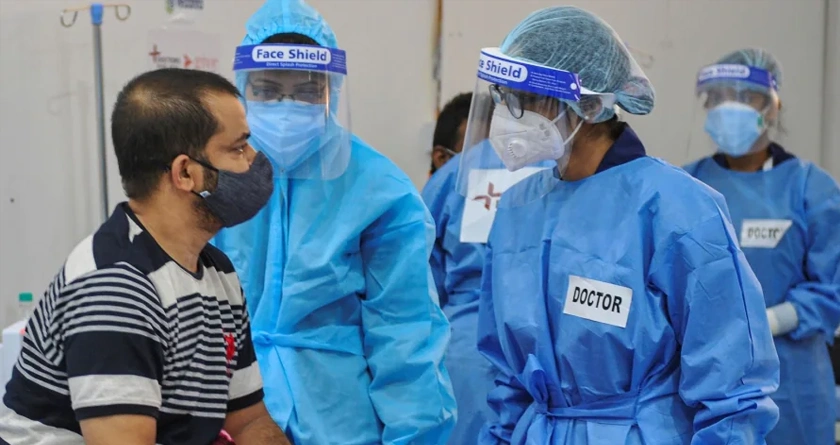
Hazardous Chemical Pollutants discovered in the disposable face masks!
Disposable face masks steeped in health declining chemicals…learn more…
Monday, 10th May 2021
A team of scientists at the Swansea University has recently discovered potentially perilous chemical pollutants released into the air from disposable facial masks when those masks are submerged into the waters. The research further talks about very high levels of contaminating substances, including antimony, copper, and lead within the plastic and silicon-based fibers present in the common disposable masks
The research is backed by the SPECIFIC Innovation & Knowledge Centre and the Institute for Innovative Materials, Processing and Numerical Technologies (IMPACT).
The lead researcher of the project, Dr. Sarper Sarp of the Swansea University College of Engineering stated: "All of us need to keep wearing masks as they are essential in ending the pandemic. But we also urgently need more research and regulation on mask production, so we can reduce any risks to the environment and human health."
The research highlights were outlined recently in a paper. The tests undertaken by the research team made use of a vast array of masks right from the plain standard face masks to the festive and novelty masks meant for kids with several of the type currently on sale in the retail outlets of the UK.
An increase in the number of single-use face masks, and other related waste, arising from the COVID pandemic has been noted as a new kind of pollutant.
The research aimed at exploring this direct connection—with varied investigations in order to detect the level of various toxic substances or materials present.
The research findings present notable levels of contaminants or pollutants in all face masks that were put to test- with micro or nano-particles as well as heavy metals thrown out into the waters in the course of all the tests.
Researchers have arrived at a conclusion that this is likely to have a substantial amount of impact on the environment and have even raised the issue of potential damage to the health of people from these new pollutants- a warning that points out that successive exposure to such pollutants could be risky as the chemicals and substances traced are said to have a close association with genotoxicity, cancerous tumors, and genotoxicity.
To combat the issue, the team of researchers advises additional research and relevant regulations be applied both in the manufacturing as well as the testing process.
"The production of disposable plastic face masks (DPFs) in China alone has reached approximately 200 million a day, in a global effort to tackle the spread of the new SARS-CoV-2 virus. However, improper and unregulated disposal of these DPFs is a plastic pollution problem we are already facing and will only continue to intensify," stated Dr. Sarper Sarp in this context.
There is sufficient evidence suggesting that the waste from the DPFs can have a potentially dangerous impact on the environment through the release of pollutants just by exposing the pollutants to water.
A huge portion of the toxic pollutants discovered during the research was said to come with bio-accumulative properties especially when they are let out into the environment. The research findings reveal that the DPFs could actually be one of the key sources of such environmental contaminants at the time of covid and after covid.
"It is, therefore, imperative that stricter regulations need to be enforced during manufacturing and disposal/recycling of DPFs to minimize the environmental impact."
Furthermore, a need is there to gain an understanding of the impact of this kind of particle leaching on the health of people.
One of the primary concerns with such particles is that these particles can easily get separated from the face masks and get released into the waters most effortlessly, which again suggests that the particles are quite unstable mechanically and are readily available for detachment.
"Therefore, a full investigation is necessary to determine the quantities and potential impacts of these particles leaching into the environment, and the levels being inhaled by users during normal breathing. This is a significant concern, especially for health care professionals, key workers, and children who are required to wear masks for large proportions of the working or school day."
The News Talkie Bureau
Source:
Zeenews India











